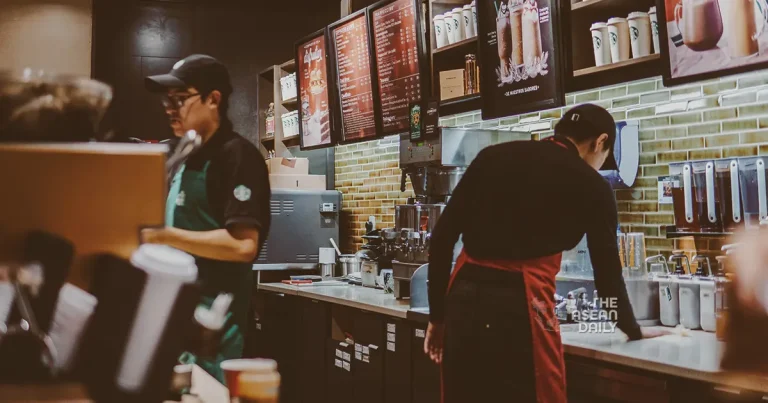9-12-2023 (KUALA LUMPUR) RHB Bank, one of Malaysia’s leading banks, has advised investors to sell their shares in Berjaya Food Berhad, the local licensee of American coffee chain Starbucks. The recommendation comes in light of the ongoing boycott against businesses perceived to be pro-Israeli since the conflict in Gaza began in October.
In a research note issued on Wednesday, RHB Bank expressed caution about the outlook for Berjaya Food Berhad, stating that the Starbucks boycott could last longer than initially anticipated. The bank’s research division noted that the recovery after the boycott might not be straightforward, and regaining market share could be challenging due to intense competition in the industry.
The conflict, now in its 62nd day, has resulted in significant casualties, with over 15,000 Palestinians killed in Israel’s retaliation to a Hamas attack on October 7. The boycott movement, known as BDS (Boycott, Divestment, Sanctions), aims to put non-violent pressure on Israel to comply with international law through boycotting, divesting, and sanctioning the country and entities supporting it.
Nazari Ismail, chairman of the BDS movement in Malaysia, welcomed the bank’s report, seeing it as proof of the movement’s effectiveness. Ismail believes that the public’s resolve to continue the boycott strategy will strengthen, particularly in response to what is perceived as increasing brutality by the Israeli army towards Palestinians. Corporations operating in Israel may now view their presence as a business risk and liability.
Starbucks has stated that it does not provide financial support to Israel. However, the company faced criticism in October when it denounced a message expressing “Solidarity with Palestine” posted by its workers’ union in the United States on social media. The boycott against Starbucks has extended beyond Malaysia and has reportedly impacted the company’s stock price, with its parent company in the US experiencing a decline of nearly US$12 billion in market value.
In Malaysia, where support for the Palestinian cause is strong, many people celebrated Starbucks’ declining fortunes and called for supporting local coffee chains and small businesses instead. Efforts by Starbucks to rehabilitate its brand, such as a recent holiday promotion featuring hijab-wearing Malaysian women, faced backlash and were seen as desperate attempts to regain public favor.
Starbucks outlets in Malaysia, including in the capital city Kuala Lumpur, have reportedly experienced a decline in customers, with local coffee brands gaining popularity. Home-grown coffee chains like Zus Coffee and Gigi Coffee have gained favor among the Malaysian public in recent years, relieving concerns about local workers losing their jobs due to the boycott.
While it remains to be seen how long the boycott will continue and its ultimate impact, the ongoing situation has prompted shifts in consumer preferences and raised questions about the long-term viability of international franchises in the Malaysian coffee market.




